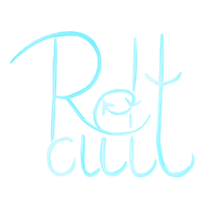RECULT is a 36-month project that aims to provide support to two sectors significantly affected by the social and economic restrictions caused by the COVID-19 pandemic: the creative art sector and social care services. By focusing on new methods and solutions, RECULT seeks to enhance social inclusion through creativity and digital tools. The project’s primary objective is to contribute to the resilience of the creative and cultural training field by offering new tools, functions, and connectivity opportunities.
The Creative Sector in the EU
The creative sector plays a vital role in the European Union (EU) economy and society. It encompasses various fields such as visual arts, performing arts, design, media, and more. It contributes to cultural diversity, innovation, and economic growth, employing millions of people across Europe. However, the COVID-19 pandemic has had a severe impact on the sector, leading to closures, event cancellations, and financial difficulties for many artists, cultural organizations, and creative professionals.
Project Objectives
The main objective of RECULT is to utilize the power of art, creativity, and visual education to achieve two key outcomes: support the (re)integration of individuals with refugee, migrant, or cultural minority backgrounds into their local communities and strengthen the resilience of the creative sector. To accomplish this, RECULT will focus on improving the competencies of adult educators working in cultural and creative trainings. The project aims to enhance social inclusion, lower barriers, and promote diversity in education.
Implementation Strategies
RECULT will employ a blended learning process, combining offline and online modes, to facilitate the complex interaction between educators, artists, and individuals from diverse cultural backgrounds. The project will introduce a method that merges community-based art creation with transnational exchange and co-creation. This approach aims to foster common values, civic engagement, and understanding among participants. By incorporating visual creativity, RECULT encourages communication and the formation of cultural identities through the creation of images and art objects. The project will also address the need for digital tools and methods to facilitate distance learning and overcome technical and language barriers faced by migrants and individuals with cultural minority backgrounds.
Expected Outcomes
At the end of the project, RECULT aspires to achieve several outcomes. Firstly, it aims to increase social integration and active participation for people with refugee, migrant, and minority backgrounds, providing them with professional opportunities and promoting their cultural rediscovery. Additionally, RECULT seeks to equip artists, teachers, educators, trainers, and social workers with new teaching skills and methods related to visual and digital education, blended learning, experimental learning, and visual and digital storytelling. The project aims to enhance outreach to learners, strengthen message-building capabilities, and promote co-creation and design thinking approaches in teaching practices.
RECULT strives to make a positive impact on the creative sector and social care services by using art, creativity, and visual education as tools for inclusion and innovation. By supporting individuals with diverse backgrounds and providing educators with new teaching methods, RECULT aims to create a more resilient and inclusive society. Through the project’s collaborative approach and the use of digital tools, RECULT envisions a future where cultural diversity is celebrated, lifelong learning is engaging, and the creative sector thrives despite challenges.
-
Results:






